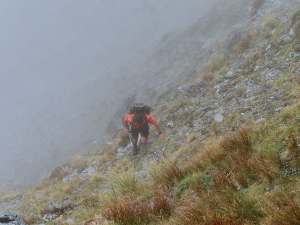A nationwide dairy farm survey is underway as part of a project to evaluate the effectiveness of current vaccination practices to prevent leptospirosis in dairy herds.
Leptospirosis is the country's most common zoonotic disease affecting the health of animals and people on pastoral farms.
A Massey University pilot study in 2010-11 found 13% of cows supposedly properly vaccinated were shedding leptospires in 44 Manawatu, Waikato and Southland herds – affecting 30% of herds. While this was not representative of the New Zealand dairy population, it raised questions about the effectiveness of vaccination on those farms, including the age of calves when first vaccinated.
Professor Cord Heuer, from Massey University's Institute of Veterinary, Animal and Biomedical Sciences, says the current research project, which began in June, aims to clarify the findings from the initial study that provided only limited insight due to the small sample used.
The project will focus on reducing leptospirosis risks in dairy cattle by surveying farmers about vaccination practices, collecting blood and urine samples from stock and collating other information to find out best practice for leptospirosis vaccination.
"We will look at the extent of animal exposure and shedding [the release of bacteria into the environment from urine], current vaccination practices against leptospirosis and links with antibody prevalence and shedding," Heuer explains.
"Ultimately, this research will be used to update best practice guidelines for farmers, veterinarians and industry stakeholders, to reduce the risk of leptospirosis infection in animals and people working on farms and in the dairy industry."
Randomly selected dairy farmers throughout NZ will be participating in this research and will be contacted initially by the Massey team. Dairy veterinarians are also being encouraged to promote the study to their clients.
Sampling is scheduled to begin in December and will target 200 dairy herds across all regions, stratified by the number of lactating cows per herd. Twenty cows per herd will be randomly selected for blood and urine samples by each farm's veterinarians. A bulk milk sample will also be collected.
The study is being overseen by the Farmers Leptospirosis Action Group (FLAG), which includes representatives from Massey University, the New Zealand Veterinary Association, Rural Women New Zealand and DairyNZ. Funding is coming from the Sustainable Farming Fund of the Ministry for Primary Industries, AgMardt, and industry and stakeholder groups.
The study will be subject to animal ethics approval and farms will not be individually identified to ensure confidentiality.
What is lepto?
Leptospirosis is an infectious bacterial disease caused by leptospires. These multiply in the kidneys of animals and are shed in the urine. They can also infect reproductive tissue. Leptospirosis affects many types of animals as well as humans.
How do people catch leptospirosis?
Transmission of the bacteria occurs when infected animal urine, or water contaminated with urine, gets in your eyes, nose, mouth or through cracks in your skin.
For dairy farmers it is usually by way of infected cattle urine through cuts in the skin, assisting in animal birth, or handling membranes, kidneys or bladders. Infected pigs are also a common source of infection for humans because of the exposure to urine. Contact with urine from infected rats, mice and hedgehogs is also a common source of infection, eg handling calf feed contaminated by rat urine.
What are the symptoms for humans?
It may just feel like a bad case of flu, with headaches and fever. Some people become seriously ill and need hospital intensive care and it can cause death. The disease might progress to kidney failure, liver failure or meningitis, requiring hospitalisation.
Symptoms are often prolonged and recurrent because the physical damage to the kidney and liver may remain after the infection has cleared.










